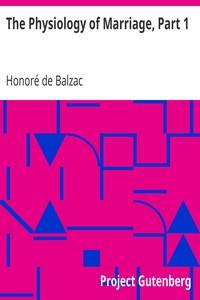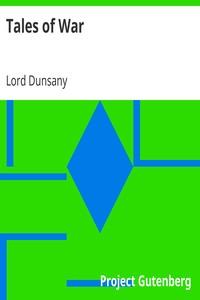Read this ebook for free! No credit card needed, absolutely nothing to pay.
Words: 67970 in 12 pages
This is an ebook sharing website. You can read the uploaded ebooks for free here. No credit cards needed, nothing to pay. If you want to own a digital copy of the ebook, or want to read offline with your favorite ebook-reader, then you can choose to buy and download the ebook.
TIME AND CHANGE
THE LONG ROAD
The long road I have in mind is the long road of evolution,--the road you and I have traveled in the guise of humbler organisms, from the first unicellular life in the old Cambrian seas to the complex and highly specialized creature that rules supreme in the animal kingdom to-day. Surely a long journey, stretching through immeasurable epochs of geologic time, and attended by vicissitudes of which we can form but feeble conceptions.
The majority of readers, I fancy, are not yet ready to admit that they, or any of their forebears, have ever made such a journey. We have all long been taught that our race was started upon its career only a few thousand years ago, started, not amid the warrings of savage elemental nature, but in a pleasant garden with everything needed close at hand. This belief has faded a good deal in our time, especially among thoughtful persons; but in a modified form, as the special creation theory, it held sway in the minds of the older naturalists like Agassiz and Dawson, long after Darwin had launched his revolutionary doctrine of our animal origin, putting man in the same zoological scheme as the lower orders.
We are slow to adjust our minds to the revelations of science, they have been so long adjusted to a revelation, so-called, of an entirely different character. It gives them a wrench more or less violent when we try to make them at home and at their ease amid these new and startling disclosures. To many good people evolution seems an ungodly doctrine, like setting up a remorseless logic in the place of an omnipresent Creator. But there is no help for it. Science has fairly turned us out of our comfortable little anthropomorphic notion of things into the great out-of-doors of the universe. We must and will get used to the chill, yea, to the cosmic chill, if need be. Our religious instincts will be all the hardier for it.
When we accepted Newton's discovery of the force called gravitation, we virtually surrendered ourselves to the enemy, and started upon a road, the road of natural causation, that traverses the whole system of created things. We cannot turn back; we may lie down by the roadside and dream our old dreams, but our children and their children will press on, and will be exhilarated by the journey.
It is at first sight an unpalatable truth that evolution confronts us with, and it requires courage calmly to face it. But it is in perfect keeping with the whole career of physical science, which is forever directing our attention to common near-at-hand facts for the key to remote and mysterious occurrences.
It seems to me that evolution adds greatly to the wonder of life, because it takes it out of the realm of the arbitrary, the exceptional, and links it to the sequence of natural causation. That man should have been brought into existence by the fiat of an omnipotent power is less an occasion for wonder than that he should have worked his way up from the lower non-human forms. That the manward impulse should never have been lost in all the appalling vicissitudes of geologic time, that it should have pushed steadily on, through mollusk and fish and amphibian and reptile, through swimming and creeping and climbing things, and that the forms that conveyed it should have escaped the devouring monsters of the earth, sea, and air till it came to its full estate in a human being, is the wonder of wonders.
In like manner, evolution raises immensely the value of the biological processes that are everywhere operative about us, by showing us that these processes are the channels through which the creative energy has worked, and is still working. Not in the far-off or in the exceptional does it seek the key to man's origin, but in the sleepless activity of the creative force, which has been pushing onward and upward, from the remotest time, till it has come to full fruition in man.
It is easy to inject into man's natural history a supernatural element, as nearly all biologists and anthropologists before Darwin's time did, and as many serious people still do. It is too easy, in fact, and the temptation to do so is great. It makes short work of the problem of man's origin, and saves a deal of trouble. But this method is more and more discredited, and the younger biologists and natural philosophers accept the zoological conception of man, which links him with all the lower forms, and proceed to work from that.
When we have taken the first step in trying to solve the problem of man's origin, where can we stop? Can we find any point in his history where we can say, Here his natural history ends, and his supernatural history begins? Does his natural history end with the pre-glacial man, with the cave man, or the river-drift man, with the low-browed, long-jawed fossil man of Java,--Pithecanthropus erectus, described by Du Bois? Where shall we stop on his trail? I had almost said "step on his tail," for we undoubtedly, if we go back far enough, come to a time when man had a tail. Every unborn child at a certain stage of its development still has a tail, as it also has a coat of hair and a hand-like foot. But could we stop with the tailed man--the manlike ape, or the apelike man? Did his Creator start him with this appendage, or was it a later suffix of his own invention?
If we once seriously undertake to solve the riddle of man's origin, and go back along the line of his descent, I doubt if we can find the point, or the form, where the natural is supplanted by the supernatural as it is called, where causation ends and miracle begins. Even the first dawn of protozoic life in the primordial seas must have been natural, or it would not have occurred,--must have been potential in what went before it. In this universe, so far as we know it, one thing springs from another; the sequence of cause and effect is continuous and inviolable.
Free books android app tbrJar TBR JAR Read Free books online gutenberg
More posts by @FreeBooks











